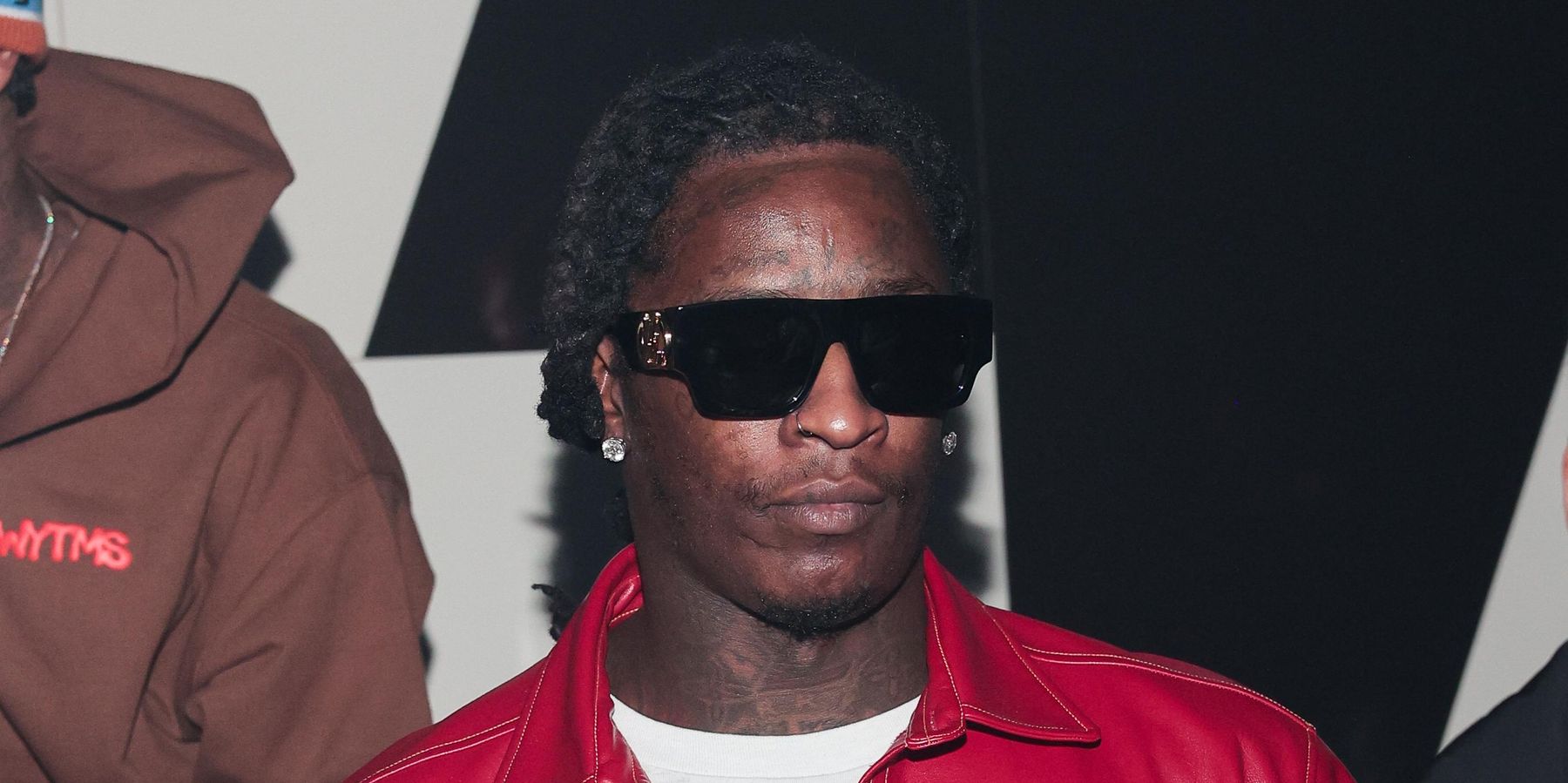
After selecting a jury last week, the Young Thug RICO trial is set to begin today with opening arguments.
The rapper, born Jeffery Williams, is facing serious charges including conspiracy to violate the Racketeer Influenced and Corrupt Organizations (RICO) Act, possession of marijuana and codeine with intent to distribute, possession of cocaine and firearms and two counts of participation in criminal street gang activity. The RICO and gang charges were brought on in May of last year, while the drug charges were added on in August after police searched his home.
Williams has pleaded not guilty to all of the charges. His attorney Brian Steel told ABC News, "Mr. Williams has committed no crime whatsoever. We will fight this case ethically, legally and zealously. Mr. Williams will be cleared.” The trial begins shortly after Williams' Young Stoner Life signee and collaborator Gunna accepted a plea deal to be released.
As the trial goes underway, the resurfaced ethical dilemma of using Williams' lyrics as evidence is being discussed once more.
A clip went viral of Judge Ural Glanville reading the lyrics to Williams' 2016 song "Slime Shit" featuring Yak Gotti, Duke and Peewee Roscoe during jury selection.
\u201cJudge in Young Thug\u2019s trial reads his lyrics from \u201cSlime Sh*t\u201d out loud during their court hearing.\ud83d\ude33\u201d— SAY CHEESE! \ud83d\udc44\ud83e\uddc0 (@SAY CHEESE! \ud83d\udc44\ud83e\uddc0) 1673034230
The song features Williams rapping about shooting up cars until the passengers need surgery and killing police officers. While these themes are not new in music, the rising trend of using lyrics as evidence in rappers' trials is concerning. Some argue that it blurs the line between freedom of expression with reality.
Bobby Shmurda, who went to jail in 2016 and was released in 2021, spoke from firsthand experience about the dangers of allowing lyrics to be used in court. "When they say rap can be used against you, it limits your art because sometimes people just wanna be free," he told TMZ. Shmurda brought the issue to a wider audience after it was suspected that lyrics from his breakout hit "Hot N*gga" would be used as evidence. While the song was not used in court, many people were concerned that there would be an increase in prosecutors looking to the lyrics booklet when preparing their case.
Despite earning over 74,000 signatures on Change.org, the "Art on Trial: Protect Black Art" petition failed to change the laws at both state and federal levels to prevent lyrics being used in court as evidence. Governor Gavin Newsom signed The Decriminalizing Artistic Expression Act, which restricts the use of lyrics as evidence, and there are similar laws in New York and New Jersey that are being discussed.
PAPER will continue to provide coverage as the trial goes underway.
Photo courtesy of Prince Williams/WireImage/Getty Images